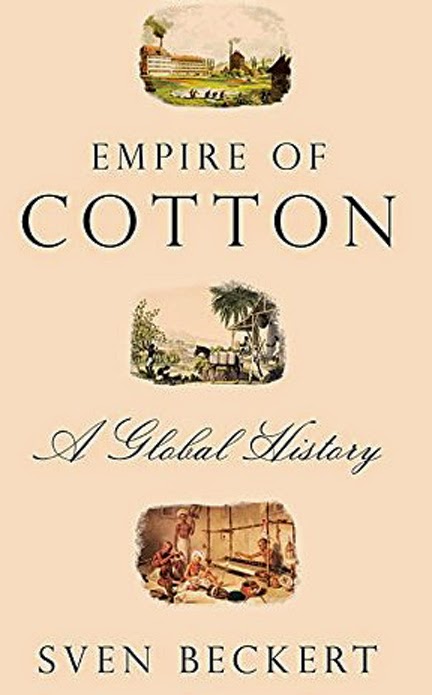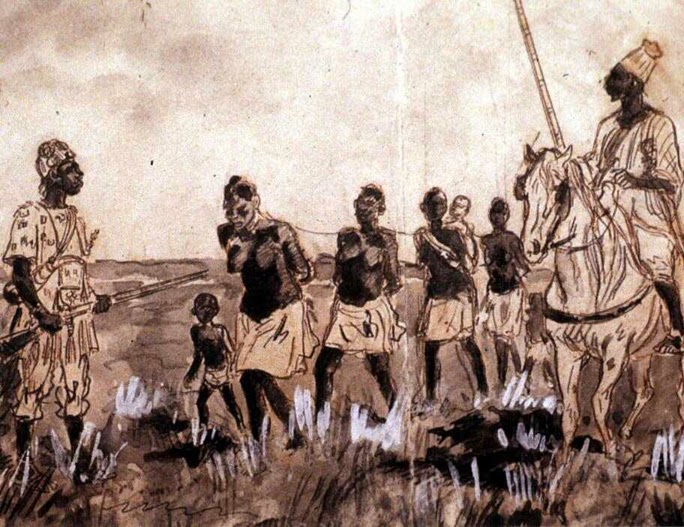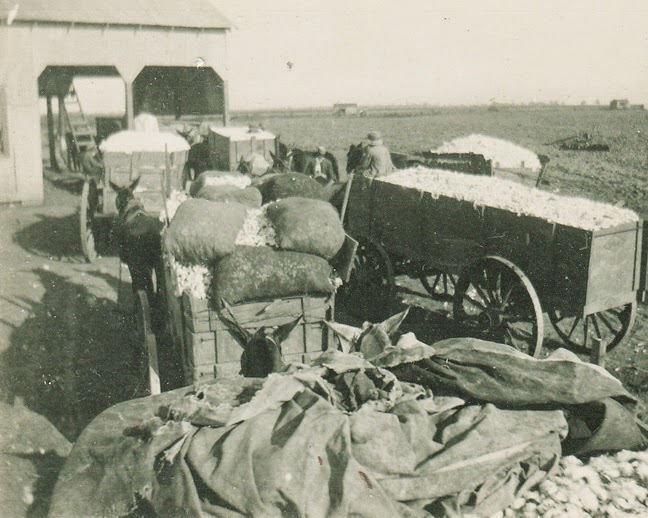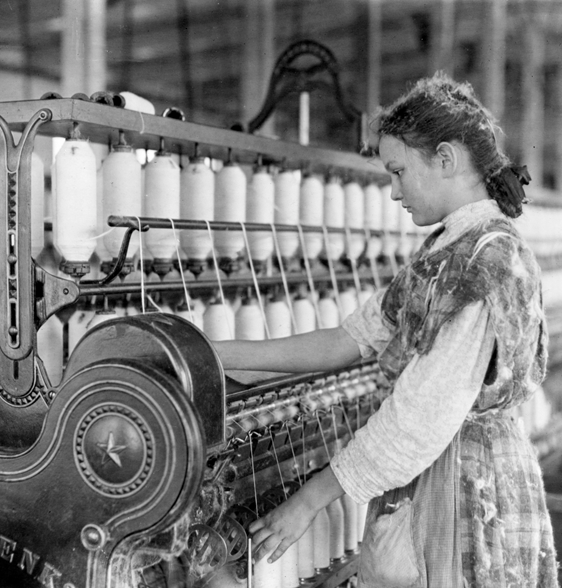Cotton Calendar Girl
1910
When this American pinup was published in 1910, the United States was the world's leading cotton producer. Through our nationalistic lens we continue to view cotton as a distinctly American product.
Empire of Cotton: A Global History by Sven Beckert has changed my view.
Cotton grows in the world's hot climates.
Different soils and weather conditions produce different qualities.
The book, which recently shared the 2015 Bancroft Prize in history, is described by the publisher:
Among the notes I made are lists of various words for the plant and its fiber. Many European languages use a variation of the Arabic qutun.
Arabic: qutun
French: coton
English: cotton
Spanish: algodon (perhaps from al qutun?)
Portuguese: algodão
Dutch: katoen
Italian: cotone
But the Germans have their own word Baumwolle, literally tree-wool.
Another etymology: Beckert traces our word Muslin to the Kurdish word for Mosul, a place too much in the news about Iraq lately.
"The empire of cotton was, from the beginning, a fulcrum of constant global struggle between slaves and planters, merchants and statesmen, workers and factory owners. Beckert makes clear how these forces ushered in the world of modern capitalism, including the vast wealth and disturbing inequalities that are with us today. The result is a book as unsettling as it is enlightening: a book that brilliantly weaves together the story of cotton with how the present global world came to exist."
The book is a 600-plus pages of popular history combined with academic theory (heavy on the theory.) Beckert, co-chair of the Program on the Study of Capitalism at Harvard University, shows us cotton's dominant role in international trade and in the industrial revolution.
Enslaved cotton workers at a
Southern plantation about 1860.
From the Robin Stanford Collection at the Library of Congress
The information that impressed me most was cotton's connection to slavery. I knew, of course, that slaves in the Americas produced much of the world supply before the Civil War, but I did not realize that cotton was the commodity that motivated African slave traders to capture and sell human beings. Africans were not looking for gold. Cotton was the medium of exchange.
Slave traders with women captives.
Painting by Alphonse Lévy about 1875.
Collection of the Musee des Arts Africains et Oceaniens
As the publisher notes, the book is disturbing and unsettling. It's also must-reading for textile historians. Those who long for the good-ole days of American cotton dominance should read it too.
Nostalgia fades with each chapter.
Cotton arriving at a mill in Fresno, Texas,
about 1900
Cotton Spinner in Cherryville, North Carolina.
Photo by Lewis Hine,
Collection at the Library of Congress, about 1910
Arabic: qutun
French: coton
English: cotton
Spanish: algodon (perhaps from al qutun?)
Portuguese: algodão
Dutch: katoen
Italian: cotone
But the Germans have their own word Baumwolle, literally tree-wool.
Another etymology: Beckert traces our word Muslin to the Kurdish word for Mosul, a place too much in the news about Iraq lately.
Woman cotton worker in Calcutta today
Read Karen Long's review in Newsday here:











That sounds like a good book to read, will have to check it out at our library. I remember the first time we went south and I got a packet with a cotton ball in it.
ReplyDeleteDebbie
I seem to remember the derivation of calico is from Calcutta cloth. It's odd reading you say the Americans think of it as American. The Greeks feel the same way as do the Egyptians.
ReplyDeleteI was fortuante to stumble across a copy of the 1924 book "The Heritage of Cotton" many years ago. I loved what the author wrote in the Introduction to that book: "It is my hope to present the story of the cotton fiber as a human drama — a drama that is by no means in its last act, but merely passing through one of its phases." I started reading Beckert's "Empire of Cotton: A Global History" several months ago. He truly does artfully weave together so many of the complex elements of the economic and human element of the world-wide cotton trade. Another very good book on this subject is Stephen Yafa's book "Cotton: The Biography of a Revolutionary Fiber" published in 2005. Yafa's book is even "entertaining" reading in my estimation because he has a great narrative sense to his writing. Beckert weaves together a lot more complex data but shines because he gives us a highly detailed view of the creation of "modern" economic history on a globale scale that began as Europeans managed to perfect thier sailing vessels to the degree that they could sail to the Far East for themselves---and ultimately to the Americas. This technological accomplishment changed the dynamics of International Trade forever. I highly recommend all three books.
ReplyDeleteGreat post about our so-loved raw material. We seldom think over the economical, ecological and human consequences of cotton culture and trade, the good... and the worst.
ReplyDeleteWe also have an interesting book in French about it : Le Pays du Coton, from Erik Orsenna.